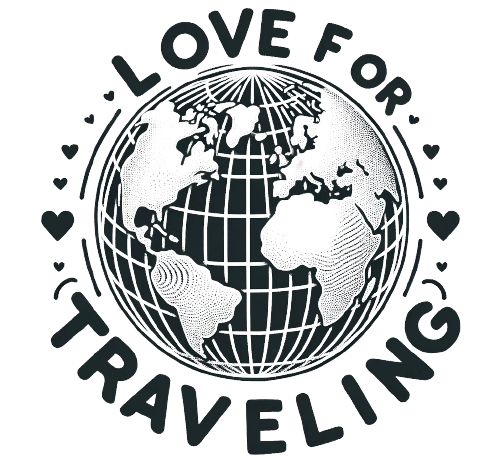How To Overcome Language Barriers While Traveling
Like a bird soaring high above the clouds, we all have an innate desire for freedom. We yearn to explore the world, to taste new foods, and to meet new people.
But when we don’t speak the local language, our wings are clipped, and our freedom is limited.
That’s why communicating effectively is essential, even if we don’t speak the same language as the people around us.
We can overcome language barriers and experience the world in all its glory with the right tools and techniques.
So, let’s spread our wings and learn how to communicate without any language barrier.
Learn Basic Phrases in the Local Language

Familiarizing yourself with some basic phrases in the local language to enhance your communication skills and facilitate your interactions with locals during your trip is essential.
Learning a new language can be intimidating, but it doesn’t have to be.
You can start by practicing standard greeting phrases such as ‘hello,’ ‘thank you,’ ‘please,’ and ‘goodbye.’ These simple phrases can go a long way in showing locals that you’re trying to communicate with them in their language.
You can also practice conversation with locals or enroll in language exchange programs to improve your language skills.
These programs allow you to connect with locals and practice speaking their language casually.
Additionally, you can download language learning apps and listen to language podcasts to improve your language skills on the go.
Use Translation Apps
You’ll find translation apps a lifesaver in a foreign country and trying to communicate with locals. These apps allow you to translate words and phrases on the spot, making ordering food, asking for directions, and engaging in basic conversations easier.
However, it’s important to remember that translation apps have their limitations. They may not always accurately capture the nuances of a language, and they may not be able to translate idioms or slang expressions.
Despite these limitations, translation apps can still be beneficial. One tip is to focus on the importance of pronunciation accuracy when using these apps.
Speaking clearly and enunciating your words can help the app better understand what you’re trying to say.
It’s a good idea to keep your sentences short and straightforward, as this can make the translation process smoother.
With some practice and patience, you can use translation apps to overcome language barriers and enjoy your travels to the fullest.
Carry a Phrasebook or Translation Dictionary
Don’t forget to bring a phrasebook or translation dictionary with you on your trip. It can be a helpful tool to aid communication and enhance your cultural experience.
Whether you are traveling to a country with a completely different language or just need help with specific phrases, a physical phrasebook or translation dictionary can be a lifesaver.
Here are some benefits of carrying a physical book:
- No need for an Internet connection: Unlike translation apps, a physical book doesn’t require an Internet connection. You can access the information in your book anywhere, anytime, without worrying about data charges or spotty Wi-Fi.
- More comprehensive: Phrasebooks and translation dictionaries often cover a wider range of topics and provide more detailed information than digital apps. This can be especially helpful if you want a more in-depth conversation or need help with a specific situation.
- Easy to use: Physical books are easy, even if you’re not tech-savvy. You can quickly flip through the pages to find what you need without navigating a complex app.
Choosing the right phrasebook or translation dictionary for your needs is essential. Look for books tailored to your destination and cover the topics you will most likely encounter.
Take Language Classes Before Your Trip

Language classes before your trip can significantly enhance your cultural experience and make communication with locals more enjoyable. There are numerous benefits of taking language classes before you travel.
Not only will you be able to communicate effectively with locals, but you will also be able to understand their customs, traditions, and way of life. It can also help you to immerse yourself in the culture and make the most of your trip.
The best time to take language classes is a few months before your trip. This will give you enough time to learn the basics and practice speaking the language. There are several ways to take language classes.
You can enroll in a language school in your area, take an online course, or hire a private tutor. Depending on your schedule and budget, you can choose the option that suits you best.
Practicing the language regularly and immersing yourself in it as much as possible is essential. This will help you to retain the information and become more comfortable speaking the language.
Use Non-Verbal Communication
When on vacation, it’s important to remember that non-verbal communication can be a powerful tool for bridging language barriers.
Practice scenarios beforehand to get comfortable using facial expressions, hand gestures, and body language to convey your message.
For example, a smile and a nod can indicate agreement or understanding. At the same time, a furrowed brow and a head shake can convey confusion or disagreement.
Paying attention to the non-verbal cues of locals can also help you understand their intentions and emotions.
- Using exaggerated hand gestures and speaking loudly may mean they’re excited or passionate about something.
- If someone avoids eye contact and speaks softly, they may feel shy or uncomfortable.
By being mindful of these cues, you can better navigate social situations and connect with the locals on a deeper level.
Use Visual Aids and Pointing

When I travel to places where I don’t speak the language, I always carry a small notebook with me where I draw simple pictures of what I need or want. For example, I draw a picture of a coffee or sandwich.
I also study basic cultural cues before my trip to understand the locals’ nonverbal communication. Hand signals and facial expressions are universal and can help bridge the language gap.
For instance, in Thailand, I meant to take a picture of a street vendor’s food stall and then to my mouth to express that I wanted to eat there. This simple gesture helped me order my food without any misunderstandings.
Use English as a Common Language
Using English as a common language can be a lifesaver when traveling abroad. (As Italian).
Not everyone speaks the same language and trying to communicate with someone who doesn’t understand you can be daunting. However, English is often taught as a second language in many countries, so it can be a valuable tool for travelers.
When I travel, I always try to learn a few basic phrases in the local language. Still, I also rely heavily on English to communicate.
Even in countries where English isn’t widely spoken, I’ve found that many people are eager to practice their language skills and are happy to engage in conversation.
Using English as a common language doesn’t just make communication more accessible; it can also help build bridges between different cultures and create deeper connections between people.
Whether traveling for business or pleasure, using English as a common language can help you make the most of your travel experience.
Conclusion
Overcoming language barriers while traveling can seem daunting, but it’s achievable with some preparation and effort.
Learning basic phrases, using translation tools and aids, taking language classes, using non-verbal communication, and embracing the adventure of a different culture can all make a big difference.
One time I was traveling in Japan, and despite my preparation and efforts, I was lost in a small town where no one spoke English.
I was feeling frustrated and helpless until a kind elderly woman approached me and offered to help. She didn’t speak English, but she guided me to my destination through hand gestures and pointing.
This experience showed me the power of non-verbal communication and seeking help from locals. It also reminded me that traveling is not just about seeing new sights but also about connecting with people and cultures meaningfully.
So, don’t let language barriers keep you from exploring the world.
Embrace the adventure, be open to learning new phrases and communication methods, and don’t be afraid to ask for help when needed. With a little effort, you can turn language barriers into opportunities for cultural exchange and growth.
